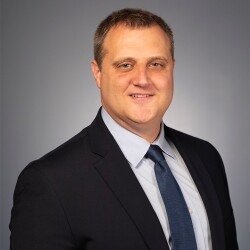GC: There are several major, interconnected macro risks that have been impacting global financial markets this year. What’s the read through to the structured finance market?
In the second half of the year, all eyes will be on the consumer and to what extent they are able to continue to borrow and spend. Related to that is what the banks report about loan loss reserves in their credit portal portfolios, which could be a harbinger of more challenging times ahead. So, everyone is going to be paying very close attention to this over the next six months.
GC: The difficult global economic context and market conditions will be an important topic for debate in Las Vegas. Together with this, though, what are some of the other key themes that will shape the discussion?
ESG is one of the most important. The whole movement is at a critical juncture and has grown to be quite powerful. One of the big questions is what do the corporate disclosure requirements mean for structured finance? Indeed, is it something that the market can capitalise on in such a way that doesn’t expose the industry to accusations of greenwashing? These are key policy questions for the industry right now, and there are many issues within that that we are working through and lot of opinions to take on board, too.
Ultimately, the ESG movement offers a lot of promise. But there are still differences of view and opinion about how and to what extent companies should be engaged in this area. Scepticism does exist. The question is whether we can find a middle-of-the-road pathway that is meaningful to all sides and big enough to scale. I think we can find that, but there is much more work to do before we’re there.
Ultimately, the ESG movement offers a lot of promise. But there are still differences of view and opinion about how and to what extent companies should be engaged in this area.

GC: You will also have the Federal Housing Finance Agency speaking at one of the sessions. What’s going to be the focus of that discussion?
We have Sandra Thompson, the director of the Federal Housing Finance Agency, coming to talk to us about a couple of key issues. One is their level of commitment to the uniform mortgage-backed security. Another is how they envision the role of the private market.
GC: On specific asset-classes, what’s going to be the focus on auto ABS?
There are quite a quite a few issues but one of the main ones is tackling what ESG means for the auto industry. For instance, one of the world’s premier electric car manufacturing companies was recently booted off the S&P 500 ESG Index due in part to corporate governance concerns. So, there are several questions raised because of this. In addition, there are questions about the strength of the auto market as a result of the financial stresses on the consumer. To what extent are they going to want to and be able to continue to borrow? There are also global supply chain issues which are impacting the industry. All of this will have some bearing on the auto ABS sector.
GC: What about private-label RMBS?
The SFA is on the cusp of being able to offer the market an industry-led standard setting organisation that could be a forum for adjudicating friction points between issuers, servicers, and investors. That's something that we've been building for about a year and we're close to being able to announce a formal board for a standard setting organisation, but really the difficulty in figuring out how to provide governance for that market has been a huge headwind to that market over the last 12 years.
However, I think there's enough economic incentive right now for people to roll their sleeves up and try to build a way for the issuers, servicers, and investors to discuss the pinch points with one another.
GC: The ESG angle in the CLO market will inevitably attract a lot of focus and attention. But what else is important for participants?
One issue in this space has been the insurance regulators recently coming down on the how insurance asset managers define CLOs. So, this is likely to be a top-of-mind issue for the CLO participants in Vegas.
GC: Diversity and inclusion is obviously an important topic for the industry. How is this reflected at the event and in what the SFA is doing?
We’ve made a concerted, intentional effort to ensure diversity on our panels and ensure diversity and inclusion is a topic that is discussed and promoted at the event. In addition, we, as an industry association, have also formed a have a foundation that seeks to support and nurture diverse talent through a scholarship programme for college students. For instance, we have a partnership with the University of the District of Columbia, where we award two scholarships a year, and offer both internships with us and placement with member firms. Beyond this we have also built a mentorship programme for mid-career diverse professionals.
All this and more are designed to help not only ensure the industry is aware of the importance of diversity and inclusion, but also to create a resource for the industry where organisations can come and ultimately find great talent.


